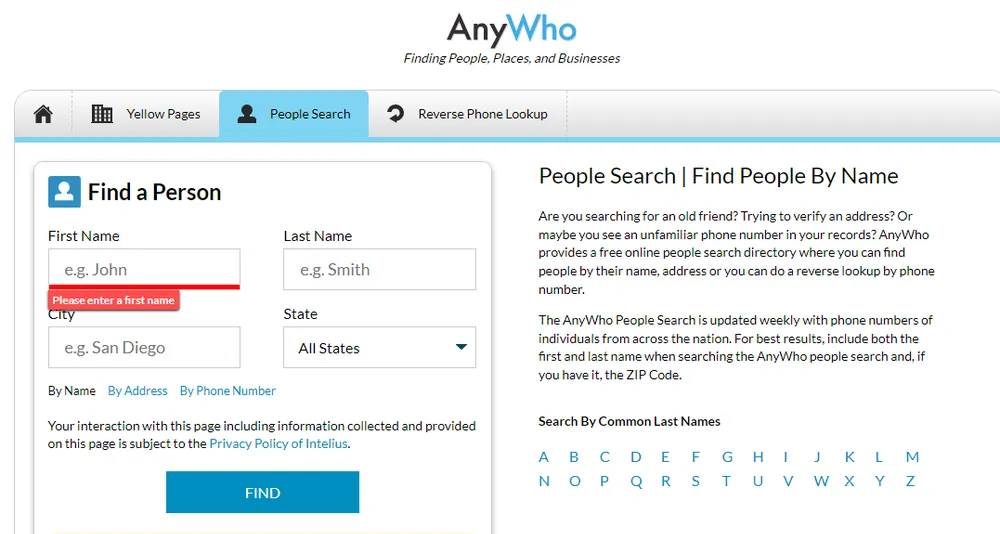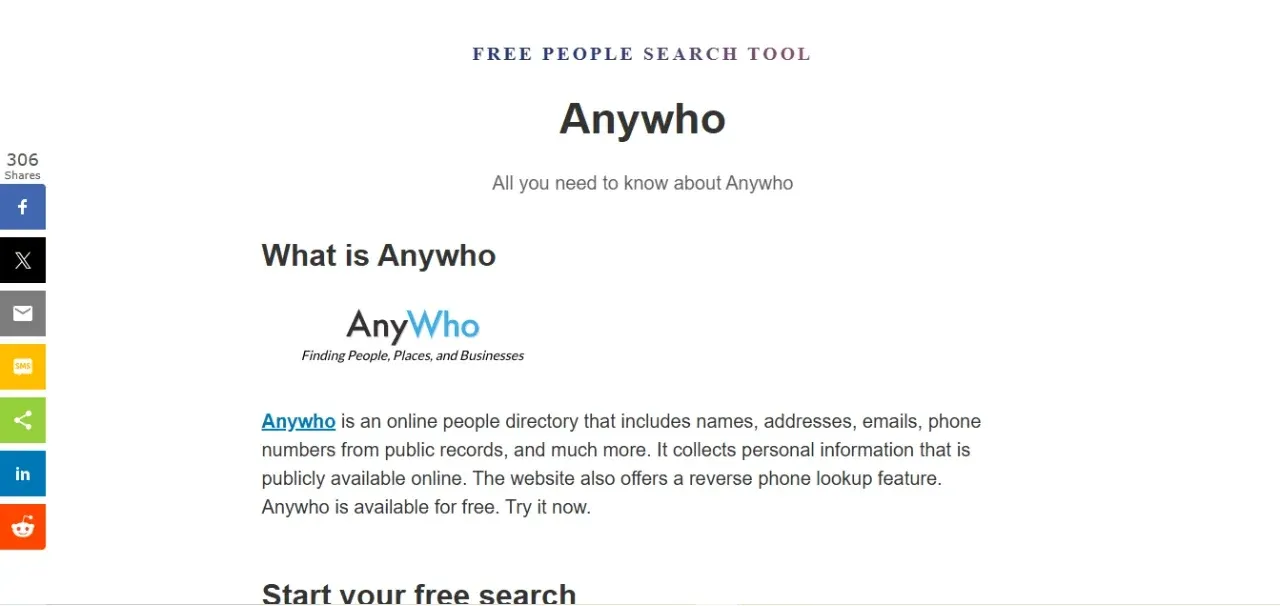Table of Contents
- The Origins and Evolution of "Anywho"
- The Role of "Anywho" in Modern Communication
- Practical Applications of Using "Anywho"
- Why "Anywho" Matters in Linguistics
- The SEO Benefits of Understanding Colloquialisms like "Anywho"
- The Future of "Anywho" and Similar Colloquialisms
If you're an internet enthusiast or someone keen on deciphering the nuances of casual communication in 2025, this article will serve you well. We'll delve into the curious use of the term "anywho," exploring its origins, relevance in modern communication, and much more. So, let's navigate through the world of informal language with a focus on "anywho."
The Origins and Evolution of "Anywho"
What is "Anywho"?
"Anywho" is a colloquial term, primarily used as a humorous or informal alternative to "anyway." It's often deployed in conversation to change the subject or transition to a new topic. While it might come off as playful or quirky, it largely serves the same purpose as "anyway"—to redirect the flow of conversation.
The Birth of "Anywho"
Understanding where "anywho" originated provides insight into its unconventional charm. The term emerged as a playful twist on "anyway," rooted in the informal speech trends of the late 20th century. Its use can often be attributed to the desire to add a whimsical tone to otherwise mundane exchanges.
Interestingly, the exact origin of "anywho" is somewhat murky. Some linguists suggest it might have evolved from regional dialects, while others believe it was a deliberate creation in pop culture. One theory even links it to a mispronunciation of "anyhow" that caught on and spread.
"Anywho" Through the Decades
The journey of "anywho" from a niche colloquialism to a widely recognized term is fascinating. In the 1980s and 1990s, it gained traction in casual speech, particularly among younger generations. By the early 2000s, it had found its way into sitcoms and movies, further cementing its place in popular culture.
As we moved into the digital age, "anywho" adapted to new forms of communication. It became a staple in text messages, emails, and social media posts, often used to add a touch of levity or to soften the tone of a message.
Now, in 2025, "anywho" continues to evolve. It's not just a spoken word anymore but has become part of our digital lexicon, appearing in memes, GIFs, and even as custom emoji in some messaging platforms.

The Role of "Anywho" in Modern Communication
A Lighter Tone in Digital Conversations
One of the main reasons "anywho" has gained popularity is its ability to lighten the mood of a conversation. In communication, especially in written forms like emails or chat messages, tone can often be misinterpreted. "Anywho," with its light-hearted presence, helps convey an undertone of humor.
In the context of 2025's highly digital communication landscape, where many interactions happen through screens, "anywho" serves as a valuable tool to inject personality into text-based conversations. It's like a verbal wink, signaling to the reader that the tone is casual and friendly.
Transitioning Topics with Ease
In both spoken and written communication, smooth transitions are crucial for maintaining engagement. "Anywho" serves as an effective transitional phrase that indicates a shift in topic without abruptness, making it easier for audiences to follow the flow of conversation.
For instance, in a work meeting, you might hear something like: "We've covered the quarterly reports. Anywho, let's move on to discuss our new product launch." This use of "anywho" softens the transition, making it feel less formal and more conversational.
Adding Relatability and Personal Touch
Using colloquial terms like "anywho" can make communication feel more relatable and personal. This can be especially effective in content marketing or social media, where establishing a connection with the audience is essential.
In 2025, with the rise of AI-generated content, using human touches like "anywho" in writing can help content creators stand out and maintain a genuine, relatable voice. It's a simple yet effective way to remind readers that there's a real person behind the words.
Breaking the Ice in Virtual Spaces
As virtual and augmented reality meetings become more common in 2025, "anywho" finds new utility in breaking the ice in these digital spaces. It can help ease the awkwardness that sometimes comes with interacting in virtual environments, making conversations flow more naturally.
Practical Applications of Using "Anywho"
In Casual Conversations
Whether in casual chats with friends or informal meetings, "anywho" can help steer the conversation with a dash of levity. It indicates a casual familiarity that often puts the listener at ease.
For example, imagine you're catching up with a friend and the conversation hits a lull. You might say, "Anywho, have you seen that new virtual reality game everyone's talking about?" This use of "anywho" smoothly changes the subject while maintaining a friendly, casual tone.
In Blogging and Content Creation
For bloggers and content creators, using "anywho" can be a strategic choice to maintain an informal tone. It introduces a conversational element that can make the content more engaging and approachable.
In 2025, with the internet saturated with content, standing out is more important than ever. Using colloquialisms like "anywho" in appropriate contexts can help create a unique voice that resonates with readers. It's particularly effective in lifestyle blogs, personal essays, or any content aiming for a casual, friendly tone.
In Customer Interactions
When engaging with customers, particularly in industries like hospitality or retail, employing "anywho" can make communications seem less robotic and more human. This approach can enhance customer experience by making interactions feel more genuine.
For instance, a customer service representative might use it to transition between topics: "I've processed your return. Anywho, is there anything else I can help you with today?" This usage can help create a more relaxed atmosphere, potentially leading to better customer satisfaction.
In Educational Settings
Surprisingly, "anywho" has found its way into some educational settings, particularly in online learning environments. Teachers and instructors use it to create a more relaxed atmosphere, making students feel more at ease in virtual classrooms.
A professor might say, "We've covered the theory part. Anywho, let's move on to some practical examples." This casual transition can help maintain student engagement, especially in long online lectures.
Why "Anywho" Matters in Linguistics
A Reflection of Language Evolution
"Anywho" exemplifies how language continually evolves to accommodate new cultural norms. This evolution is a testament to the adaptability of language and its capacity to reflect societal shifts.
Linguists often point to terms like "anywho" as examples of how informal language can become standardized over time. It's a fascinating case study in how words can shift from being considered errors or slang to becoming accepted parts of casual speech.
The Influence of Media and Pop Culture
Media and pop culture have played significant roles in popularizing phrases like "anywho." Television shows, movies, and internet memes often use such terms to resonate with a younger or more digitally-savvy audience, contributing to their widespread adoption.
In 2025, with the rise of short-form video content on platforms like TikTok and its successors, colloquialisms like "anywho" have become even more ingrained in our daily language. They're not just words anymore, but part of a shared cultural lexicon that spans generations and geographies.
Anywho and Digital Linguistics
The use of "anywho" in digital communication has become a subject of study in the field of digital linguistics. Researchers are interested in how such terms affect the tone and reception of messages in various online contexts.
Some studies have shown that the strategic use of colloquialisms like "anywho" can increase engagement rates in digital marketing campaigns. It's a testament to the power of informal language in creating connections, even in professional settings.
For a deeper dive into the linguistics of internet slang, check out this YouTube video on the evolution of internet language.
The SEO Benefits of Understanding Colloquialisms like "Anywho"
Enhancing Keyword Research
Understanding colloquial terms allows for more effective keyword research. By incorporating informal phrases like "anywho" into content strategies, digital marketers can optimize content to capture a broader range of search queries.
In 2025, as search engines become increasingly sophisticated in understanding natural language, including colloquialisms in your SEO strategy can help you tap into more conversational search queries. This is particularly important with the rise of voice search, where people tend to use more informal language.
Improving User Engagement
Content that resonates with its audience tends to perform better in terms of user engagement. By integrating familiar terms and phrases, creators can craft content that feels aligned with user language, thereby improving interaction metrics like time on page and bounce rates.
For example, a blog post titled "Anywho, Let's Talk About SEO" might perform better in certain contexts than a more formal title. It signals to the reader that the content will be approachable and easy to understand, potentially increasing click-through rates and engagement.
Localizing Content
Understanding and using colloquialisms like "anywho" can be crucial in localizing content for specific markets or demographics. It helps in creating content that feels native and relatable to the target audience.
This localization extends beyond just language – it's about capturing the essence of how people in a particular region or demographic communicate. For businesses looking to expand their reach, mastering these linguistic nuances can be a game-changer.
The Future of "Anywho" and Similar Colloquialisms
Anywho in the Age of AI
As we look towards the future, the role of colloquialisms like "anywho" in AI-human interactions becomes increasingly interesting. In 2025, as AI language models become more sophisticated, they're being trained to understand and even use such informal language to create more natural-sounding interactions.
However, this raises questions about the authenticity of AI-generated content. Will the use of terms like "anywho" by AI systems make them more relatable, or will it feel inauthentic? It's a debate that continues to engage linguists, technologists, and ethicists alike.
The Global Spread of "Anywho"
With the continued globalization of media and the internet, colloquialisms like "anywho" are finding their way into non-English speaking cultures. It's fascinating to see how these terms are adopted and adapted in different linguistic contexts.
In some cases, "anywho" is used as-is in non-English conversations, becoming a loanword. In others, it inspires similar colloquialisms in other languages. This cross-pollination of language is a testament to our increasingly connected world.
Preserving Linguistic Diversity
While the spread of colloquialisms like "anywho" is interesting, it also raises concerns about linguistic diversity. As English continues to dominate the internet, there's a risk of losing unique local expressions to more globally recognized terms.
Efforts are being made to document and preserve local colloquialisms, ensuring that while global terms like "anywho" gain popularity, they don't come at the cost of linguistic diversity. Organizations like The Endangered Languages Project are at the forefront of these preservation efforts.

Conclusion: Embracing the Whimsy of "Anywho"
In a world where communication is increasingly digital, maintaining a human touch is more critical than ever. "Anywho" offers a simple yet effective way to inject personality and warmth into interactions. Whether you are a casual communicator, a content creator, or a marketer, embracing such colloquial language can enhance the quality and relatability of your communications.
As we navigate the complex landscape of language in 2025, terms like "anywho" remind us of the playful, ever-evolving nature of human communication. They serve as bridges between formality and casualness, between different generations, and even between cultures.
So, anywho, as we continue to explore the wonders of language and its impact on our daily interactions, let's remember to appreciate these little linguistic quirks. They're more than just words – they're reflections of our shared human experience, evolving with us as we move into the future.
Whether you're a language enthusiast, a marketer looking to connect with your audience, or just someone curious about the words we use, embracing colloquialisms like "anywho" can open up new ways of understanding and engaging with the world around us. So go ahead, sprinkle a little "anywho" into your conversations – you might be surprised at the connections it helps you make.


